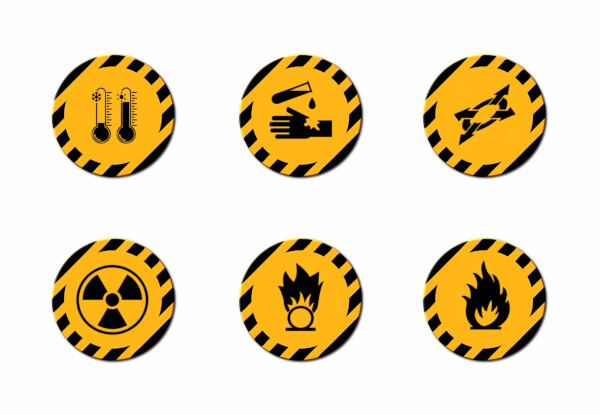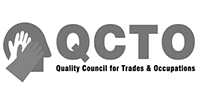Blog Post
EMCARE’s Health and Safety Course Creates Employment Opportunities

Working in the health and safety industry is a great choice if you want to serve your community while supporting yourself and others. Health and safety professionals prevent risks from becoming fatal, and they do so in an organised and controlled manner. Breaking into these employment opportunities and earning a competitive salary requires great willpower, determination, and willingness to participate in a health and safety course provided by EMCARE’s well-established training institute. If you’re interested in learning more about the industry, the job market, and the health and safety courses that EMCARE offers, then read the article below to start your journey.
Job Opportunities for Students with Health and Safety Course Qualifications
People who work as health and safety professionals spend their days monitoring safety conditions in the workplace, doing their best to guarantee that no employees get harmed due to unchecked risks. These professionals conduct risk assessments, track hazards and reduce the danger by ensuring that health and safety protocols are in place and that the OHS Act 85 of 1993 are being complied with. Whether you’re a student in a health and safety course for the first time, or a returning trainee looking to advance your career, EMCARE’s training modules provide a great opportunity for career development and personal upskilling.
With these qualifications under your belt, you’ll be surprised by how quickly and gainfully you’ll acquire employment. Health and safety is an in-demand career as there is a surprisingly large shortage of qualified workers. What’s more, these workers are needed and mandated by law to be present for checks and controls in all sectors and workplaces. From commercial spaces to heavy industry and even the entertainment industry, all businesses require health and safety checks.
So, if you have an innate interest in helping others and enforcing risk management controls, then you’ll be perfect for a health and safety course. And this decision to advance your qualifications will only lead to many wonderful and interesting career opportunities. Some of the potential positions you could move into after participating in a health and safety course include:
- Health and safety specialist
- Risk assessor
- Health and safety advisor
- Construction site manager
- Occupational hygienist
- Site supervisor
- Safety compliance manager
- Fire safety officer
- Warehouse supervisor
EMCARE’s Health and Safety Course Options

Emcare has been providing accredited and affiliated health and safety training to students and professionals looking to advance themselves for the last 21 years. With more than 100 different courses available, from firefighting to emergency medical training, students have many opportunities to upskill and develop their capacity in the health and safety industry. Each of these courses is accredited by the Department of Labour, the Local Government Sector Education and Training Authority (LGSETA) The Health and Welfare Sector Education and Training Authority (HWSETA) and the Department of Mineral Resources, so students can rest assured regardless of what course they choose, they will achieve the best standards of higher qualification. Some of the health and safety courses offered by EMCARE include the following.
-
Health and Safety Training Introduction Course (OHS1/OHS2)
Many companies choose to register their employees in this course to train them on the basics of workplace health and safety. Some of the course highlights include environmental awareness, personal protective equipment and emergency evacuation training. This is a great way to prepare employees for any emergencies and prevent unnecessary accidents in the workplace.
-
General Health and Safety Course (OHS7)
This course is slightly more advanced than the OHS1/OHS2 course as it takes a more in-depth look at the Occupational Health and Safety Act, which provides health and safety legislation for those working in plants and other environments that use industrial machinery. Many managers or senior supervisors choose to take this course because it equips students with practical knowledge about workplace safety procedures and labourers’ working conditions. Students will leave this course with the ability to maintain environmental requirements for an optimal and healthy working environment.
-
Health and Safety Representative Course (OHS3)
This course will turn applicants from students to trained, appointed health and safety representatives. Students can expect to learn practical elements such as the legislative history of occupational health and safety, as well as practical things like how to compile inspection sheets and Department of Labour annexure forms and process investigations in accidents. This is a great course to take if you’d like to become a Health and Safety Representative, which will lead to much since every organisation is mandated to have a representative according to Section 17 of the OHS act.
-
Health and Safety Supervisors Course (OHS4)
This course advances from OHS4 by offering its students knowledge regarding hazard identification, Iceberg Theory, high-risk conditions and implementing controls. These additional course elements prove useful in preparing health and safety supervisors, managers and coordinators with an overall understanding of the industry. Students will come out of the course with a better understanding of risk assessment and incident investigation to name a few.
-
OHS Act Course (OHS9)
This course is great for those who are more intrigued by the complexities and technicalities of health and safety policy and legislation. The OHS Act course focuses primarily on the terminology used in the OHS Act, such as the section 37.2 agreements, the Department of Labour annexure and other health and safety policy statements. This course helps students create legislative compliance in the workplace, which is an important skill to have if you want to ensure that there are no illegal safety issues in the workplace that you’re managing or supervising.
-
OHS Workshop (OHS10)
This course is another iteration of the OHS Act Course. However, students will have more opportunities to do hands-on and practical work, as they will be expected to apply their theoretical knowledge to real-life scenarios. The course provides students with very useful materials and resources on the OHS Act 85 of 1993 so that they can ensure their proficiency in legislative compliance.
-
COIDA Course (OHS12)
COIDA is an abbreviation for the Compensation for Occupational Injuries and Diseases Act. It is a training course that focuses on the legal rights and obligations of employers, employees and other third parties. Students participating in the COIDA course will learn more about the documentation and compliance requirements for HR managers, health and safety committee members, medical practitioners, health and safety representatives and others.
-
Risk Assessment Course (OHS6)
This is a more practical and specialised course in our portfolio of health and safety course options. The course focuses specifically on conducting and implementing hazard identification, problem analysis, hazard tracking, period evaluations, and risk management. Students can expect to learn the specific procedural ways of dealing with the administrative side of incidents and risks, as well as the terminology and technicalities involved in assessing risk.
-
Safety Officer Course (OHS8)
This popular course allows students to progress from student to health and safety professional. This course creates the perfect environment to practise the theoretical work that you’ve learnt, and determine your capacity to implement risk management controls and regulations. Some of the specific course content in this health and safety course includes learning how to lodge compensation claims with the Compensation Commissioner, as well as how to conduct health and safety committee meetings and apply the OHS Act 85 of 1993.
-
Accident Investigation Course (OHS5)
This health and safety course equips students to manage accidents and incidents in the workplace. Learners will undergo training to prepare them for the day when they will have to lodge compensation claims, gather witness information and comply with OHS act risk mitigation procedures. With qualifications from this course, students will be prepared for the realities of accident investigation.
-
Emergency Evacuation Procedures Course (OHS13)
Every building has to follow a set of procedures and drills in the case of an emergency. This is a very important safety control measure that many companies have to implement, so having this qualification is always highly valued in the workplace. During this course, EMCARE’s professional trainers will teach students how to prepare safety drills, place and use emergency equipment, conduct zone sweeps, communicate with first aid teams and zone marshalls, and effectively evacuate a space in danger.

GET IN TOUCH
There are a few ways to reach us below. Please feel free to contact us via phone, email or you can send us a message via the form provided and we will get back to you.




















